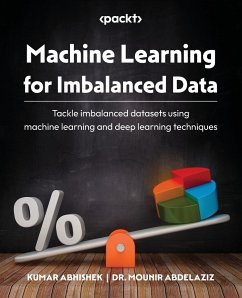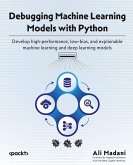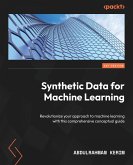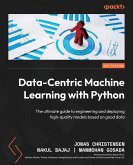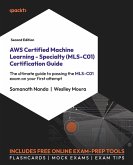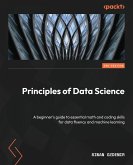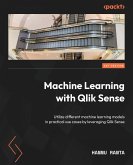Take your machine learning expertise to the next level with this essential guide, utilizing libraries like imbalanced-learn, PyTorch, scikit-learn, pandas, and NumPy to maximize model performance and tackle imbalanced dataKey FeaturesUnderstand how to use modern machine learning frameworks with detailed explanations, illustrations, and code samples Learn cutting-edge deep learning techniques to overcome data imbalance Explore different methods for dealing with skewed data in ML and DL applications Purchase of the print or Kindle book includes a free eBook in the PDF format Book Description As machine learning practitioners, we often encounter imbalanced datasets in which one class has considerably fewer instances than the other. Many machine learning algorithms assume an equilibrium between majority and minority classes, leading to suboptimal performance on imbalanced data. This comprehensive guide helps you address this class imbalance to significantly improve model performance. Machine Learning for Imbalanced Data begins by introducing you to the challenges posed by imbalanced datasets and the importance of addressing these issues. It then guides you through techniques that enhance the performance of classical machine learning models when using imbalanced data, including various sampling and cost-sensitive learning methods. As you progress, you'll delve into similar and more advanced techniques for deep learning models, employing PyTorch as the primary framework. Throughout the book, hands-on examples will provide working and reproducible code that'll demonstrate the practical implementation of each technique. By the end of this book, you'll be adept at identifying and addressing class imbalances and confidently applying various techniques, including sampling, cost-sensitive techniques, and threshold adjustment, while using traditional machine learning or deep learning models.What you will learnUse imbalanced data in your machine learning models effectively Explore the metrics used when classes are imbalanced Understand how and when to apply various sampling methods such as over-sampling and under-sampling Apply data-based, algorithm-based, and hybrid approaches to deal with class imbalance Combine and choose from various options for data balancing while avoiding common pitfalls Understand the concepts of model calibration and threshold adjustment in the context of dealing with imbalanced datasets Who this book is for This book is for machine learning practitioners who want to effectively address the challenges of imbalanced datasets in their projects. Data scientists, machine learning engineers/scientists, research scientists/engineers, and data scientists/engineers will find this book helpful. Though complete beginners are welcome to read this book, some familiarity with core machine learning concepts will help readers maximize the benefits and insights gained from this comprehensive resource.Table of ContentsIntroduction to Data Imbalance in Machine Learning Oversampling Methods Undersampling Methods Ensemble Methods Cost-Sensitive Learning Data Imbalance in Deep Learning Data-Level Deep Learning Methods Algorithm-Level Deep Learning Techniques Hybrid Deep Learning Methods Model Calibration Appendix

